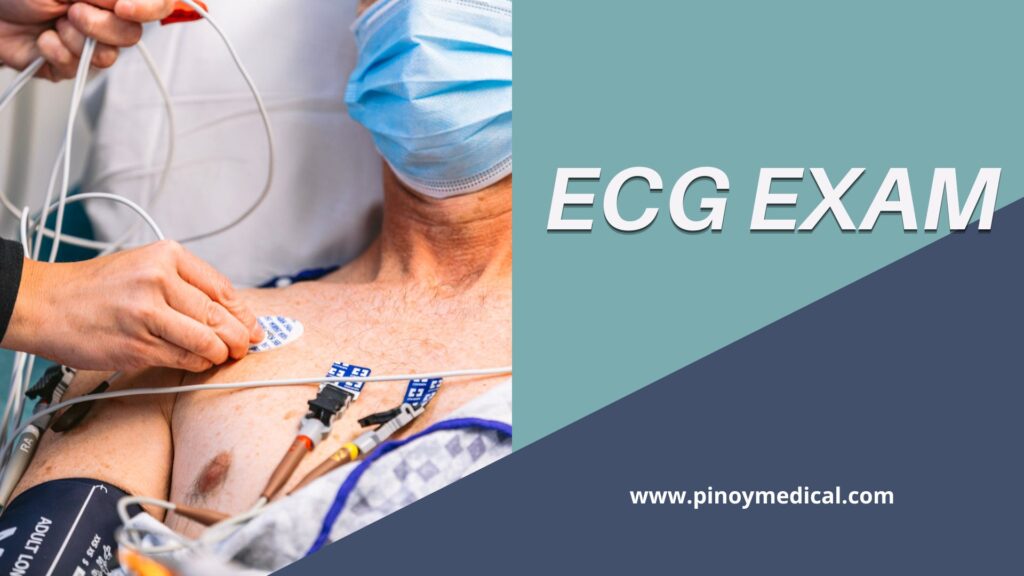The purpose of an electrocardiogram, or ECG, is to record electrical signals to keep track of heart activity. It aids in the diagnosis of cardiac disorders including arrhythmias, myocardial infarctions, and anomalies in the internal structure or operation of the heart. This non-invasive test supports treatment choices, evaluates heart health, and keeps an eye on cardiac function while undergoing medical treatments.
ECG Price
The price of an ECG can range from as low as ₱250 to ₱1,250 which depends on current hospital charges. It may be available as a singular package or as part of a package. One type of test is called 12L ECG. This involves 12 nodes attached to the body for proper monitoring. The price may start from ₱400 and above.

Popular Hospitals that Provide ECG
Different equipment quality, facility charges, geographical aspects, and healthcare system architecture can all affect how much an ECG costs at different institutions. Price is also influenced by other factors, including insurance agreements, service packaging, and hospital image. Further factors that contribute to the total expense disparity include differences in additional services, staffing levels, and technology innovations. The listings of renowned hospitals that provide ECG are shown below.
| Hospital/Lab | Location | Contact | |
| New World Diagnostics | 104 & 105, Ground Floor, Rooms, Campos Rueda Building, 101 Urban Ave, Makati, Metro Manila | (02) 8790 8888 | [email protected] |
| RMSJ Laboratory X-Ray and ECG Services | Phase 1, Package 1, Block 18, Lot 4 Barangay 176, District 1, Caloocan, 1428 Metro Manila | 09464542067 | [email protected] |
| Calamba Medical Center | Mezzanine, Tower 2, The Enterprise Center, 6766, Ayala Ave. cor. Paseo de Roxas, Makati City, 1226 | 0920-965-6060 0920-974-4994 | [email protected] |
| Makati Medical Center | No. 2 Amorsolo Street, Legaspi Village, Makati City, Philippines 1229 | +632 8888 8999 | [email protected] |
| Hi Value Multi Expert Diagnostic & Laboratory Center, Inc. | Real Street, Las Piñas, 1742 Metro Manila | 09178715566 | [email protected] |
| Health Check Medical Clinic and Diagnostic Center | 128 Matalino St, Diliman, Quezon City, Metro Manila | 0283326552 | [email protected] |
| Capitol Medical Center, Inc. | Quezon Ave. corner, Scout Magbanua Street, Brgy. Paligsahan, Quezon City, Philippines 1103 | 09190691891 | [email protected] |
| Blessed Heart Diagnostics and Multi-Specialty Clinic | Taft Avenue, corner Pedro Gil St, Malate, Manila, Metro Manila | 0253101347 | [email protected] |
| Health Screen Laboratory & Diagnostic Center – Makati | G/F ANSA II BUILDING – DON CHINO ROCES AVE, CORNER Montojo, Makati, 1204 Metro Manila | 09398885389 | [email protected] |
Video about ECG
FAQs
How do I prepare myself for an ECG?
Generally speaking, an ECG doesn’t require any extra preparation. To facilitate the installation of the electrodes, patients may be instructed to take off their clothes up to the waist. They may also be advised to refrain from using greasy or oily creams on the breast region.
Is there discomfort during an ECG?
No, an ECG is a non-intrusive painless process. Patients often experience little to no discomfort throughout the procedure, which involves the placement of tiny electrodes on the skin to identify electrical signals from the heart.
What is the duration of an ECG?
Performing an ECG usually takes five to ten minutes. Even so, the length of time could change based on the patient’s condition and the medical provider’s specific directions.
Who ought to undergo an ECG?
ECGs are frequently advised for those who exhibit symptoms including fainting, heart palpitations, shortness of breath, or chest discomfort. Additionally, they could be a component of regular health examinations for people having heart disease risk factors including diabetes or high blood pressure.
Are there any hazards connected to electrocardiograms?
Generally speaking, there are no dangers involved with an ECG. There is no exposure to radiation or intrusive approach involved in this safe operation. Rarely, though, some people may get skin reactions as a result of the adhesive electrodes utilized during the test.


